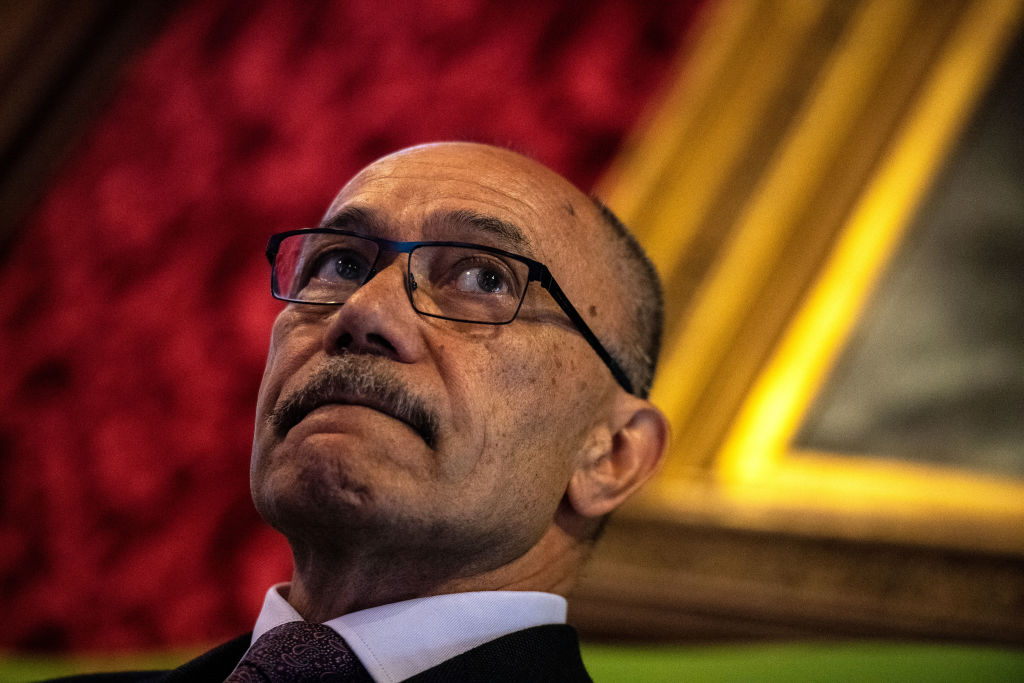The Pacific Island of Bougainville continues its push for independence.
Nearly five years after 97 percent of the roughly 300,000 residents of Bougainville voted for independence from Papua New Guinea (PNG), little progress has been made in implementing their will.
For that to happen, the referendum result requires ratification by the PNG Parliament, and there appears to be little appetite for doing so.
The small island (though the largest in the Solomon Islands archipelago) is officially an autonomous region, consisting of the eponymous island plus Buka Island—home to the capital, Buka—and several outlying islands and atolls.
During the colonial era, the region was occupied and administered by Germany, Australia, Japan, and the United States for various periods until becoming part of the newly formed Papua New Guinea in 1976.
But that had never been part of the inhabitants’ vision. In 1975, they briefly declared the islands the Republic of the North Solomons, but their calls for an independent state dated back to at least the 1960s.
When that was denied—and partly because of conflict over ownership of the Panguna mine, which contains one of the largest copper reserves in the world—a violent civil war broke out in 1988.
It lasted a decade, resulting in the deaths of up to 20,000 people. A peace agreement resulted in the creation of the Autonomous Bougainville Government (ABG).
In another push for complete independence, a non-binding referendum was held in 2019, and the result led the Bougainville government to say it intended to become independent between 2025 and 2027.
Last year, significant disagreements about how the ratification process should work led to a breakdown in talks between the national and Bougainville governments. While the PNG government insists a two-thirds Parliamentary majority is needed for ratification, the ABG has argued a simple majority is sufficient.
ABG President Ishmael Toroama has said it would be “very shameful” if PNG’s Parliament failed to endorse the result, given the massive vote in favour of independence.
He also raised the spectre of more violence, warning that the people of Bougainville could “revolt” if they felt like their vote was ignored, but clarified that he did not mean they should “go to war.”

With no visible progress toward that goal, leaders from Bougainville and PNG have agreed to bring in Jeremiah “Jerry” Mateparae, former Chief of the New Zealand Defence Force (2006 to 2011), Governor-General (2011 to 2016), and High Commissioner to the United Kingdom (2017 to 2020).
He was also commander of the Peace Monitoring Group in Bougainville.
Former NZ Foreign Minister Don McKinnon, who went on to become Commonwealth Secretary-General and who played a key role in brokering the peace deal that brought the decade-long civil war to an end, is optimistic.
“If anyone can develop a solution from these people, Sir Jerry’s got a good chance of doing so,” McKinnon said.
“[He] understands the Polynesian and the Melanesian way—it’s within his DNA—and he‘ll know there’ll be a lot of time spent face to face, just listening … and probing for the points that he could capitalise on to get them closer together.”
The former governor-general also played a central role as a mediator in the ceasefire negotiations.
A spokesperson for current New Zealand Foreign Minister Winston Peters said the government “welcomed indications Sir Jerry Mateparae is the preferred United Nations moderator, to assist the governments of Papua New Guinea and Bougainville chart a path forward for Bougainville’s future. Sir Jerry comes with sound credentials.”
The governments of Papua New Guinea and Bougainville released a joint statement saying, “We consider Sir Jerry to be extremely credible; [he] is from the Pacific Region and commands the respect of both our governments.
“During our discussion, we agreed that the scope of the moderator should be broadened and be as flexible as required.
“We have conveyed our request directly to Sir Jerry. There is an administrative process to follow but we look forward to working closely with Sir Jerry and the U.N. in supporting our two governments in navigating a mutually successful conclusion to the Bougainville peace process.”

Despite the bipartisan welcome, Sir Jerry does not face an easy task.
Bougainville’s President Toroama, was recently in Australia seeking support from the Bougainvillean diaspora there. He stressed that the island is “preparing for independence.”
“All our faculties must stand ready to complement the political will of this government to attain nothing short of political independence for Bougainville,” he said.
Meanwhile, McKinnon, who was nominated for a Nobel Peace Prize for his role in bringing about peace in the region, warns he would never have advocated for complete independence.
“It is just a hugely costly exercise. I’ve always said, get the maximum autonomy you can from Papua New Guinea.”
An independent Bougainville would need to have a way of funding infrastructure, health and education from a tax base of just 300,000 people, he points out, which is problematic unless it looks at re-opening Panguna and other mines—a solution that brings with it its own set of problems.

